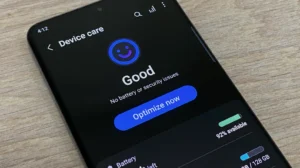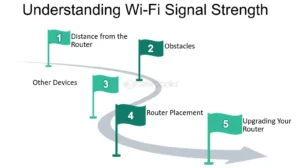Many people face challenges with their feelings and thoughts every day. This can be tough and seems to get worse when we don’t know how to manage these feelings.
One popular treatment that helps people learn to manage their emotions better is called Dialectical Behavior Therapy (DBT). DBT is especially useful for those struggling with mental health issues.
Read on to learn about DBT treatment.
What is Dialectical Behavior Therapy?
Dialectical Behavior Therapy is a type of therapy that combines different ideas. It includes strategies from cognitive behavioral therapy, mindfulness, and acceptance.
DBT was created by Dr. Marsha Linehan in the 1980s to help people with borderline personality disorder. Since then, it has been used to support others living with numerous mental health challenges. It teaches individuals how to handle their emotions, improve relationships, and build a strong coping skills toolkit.
Key Components of DBT
DBT consists of four main parts that focus on different skills. Each part plays a critical role in helping someone improve their mental health and emotional stability.
Mindfulness
The first part of DBT is mindfulness. Mindfulness teaches people to be fully present and aware of what is happening right now, rather than letting their minds wander.
This skill helps individuals manage their thoughts and feelings without judgment. When someone practices mindfulness, they may find that they can notice their feelings without becoming overwhelmed by them.
Distress Tolerance
The second part is distress tolerance. This focuses on how to handle difficult situations without reacting impulsively. Life can be stressful, and everyone encounters hard times.
Learning to tolerate distress helps people stay calm and make better decisions during tough moments. It also encourages people to find healthy ways to cope with pain or sadness.
Emotion Regulation
The third part of DBT is emotion regulation. Understanding and managing emotions can be a challenge for many.
DBT provides tools to help people recognize their feelings and improve how they respond to them. This skill is essential as it allows individuals to control strong emotions instead of letting those emotions control them.
Interpersonal Effectiveness
The last part is interpersonal effectiveness. This teaches individuals how to communicate better and build healthier relationships.
Knowing how to express needs and set boundaries is crucial for maintaining a support system and improving mental health. It empowers people to create positive connections with others.
How DBT Improves Mental Health
Many studies have shown that DBT can effectively help people improve their mental health. Individuals who underwent DBT experienced fewer symptoms of depression and anxiety. They also reported better emotional resilience and higher satisfaction in their relationships.
The Role of a Support System
A strong support system can greatly enhance the benefits of DBT. Having friends, family, or support groups encourages open communication and helps individuals process their feelings.
Emotional support from loved ones is essential in each step of the healing process. When individuals feel supported, they can practice the skills learned in DBT more effectively.
Family and Friends as Supports
Family and friends play a vital role in someone’s journey through DBT. They can offer encouragement, provide a listening ear, and help reinforce the skills learned in therapy.
Teaching loved ones about DBT can also aid their understanding of what the individual is facing, making it easier for them to provide emotional support.
Support Groups
Support groups are another great resource. These groups bring individuals together who share similar experiences.
In a supportive environment, members can share their stories, learn from each other, and practice DBT skills together. This sense of community can provide the emotional support necessary for healing.
DBT in Different Settings
DBT can be applied in various settings, making it available to a wide range of individuals. Some may attend therapy sessions individually, while others participate in group therapies.
Some programs even offer comprehensive DBT treatments that include individual therapy, group skills training, and coaching through phone calls or messages.
Individual Therapy
In individual therapy sessions, a trained therapist tailors the session to meet specific needs. The therapist will work closely with the individual to set goals and focus on specific challenges. This personalized approach allows for deeper exploration of emotions and thoughts, enhancing the overall effectiveness of DBT.
Group Therapy
Group therapy sessions typically involve learning the skills outlined in DBT and practicing them with peers. The environment is supportive, and it allows members to share their experiences and foster a sense of belonging. This can be especially beneficial for those struggling with feelings of isolation.
Common Myths About DBT
Despite its many benefits, some misconceptions about DBT may lead individuals to hesitate seeking help. Addressing these myths can help demystify the treatment and encourage more people to explore its benefits.
DBT is Only for Severe Mental Health Issues
Many people believe that DBT is only for those with severe mental health issues, but this is not true. While it is highly effective for serious conditions like borderline personality disorder, it can also benefit anyone struggling with emotional challenges.
DBT is Too Complicated to Learn
Some individuals may think that DBT skills are too complex to grasp. However, with the help of a therapist and practice, many find that these tools become manageable and easy to incorporate into everyday life.
DBT Takes Too Much Time
Some individuals worry that DBT requires a long-term, all-consuming commitment. While comprehensive DBT programs often include individual therapy, group skills training, and phone coaching, there are also shorter and more flexible formats. Many therapists tailor DBT to meet clients’ specific needs and time constraints. Even learning and applying a few core DBT skills can make a meaningful difference.
DBT is Only Useful During a Crisis
Another common misunderstanding is that DBT is primarily a crisis-management tool. While it is highly effective in helping people navigate intense emotional situations, DBT also focuses on building long-term emotional resilience and improving everyday functioning. Skills like mindfulness and emotional regulation are preventative tools that help individuals stay balanced and avoid future crises.
Embracing a Path to Improved Mental Health
Dialectical Behavior Therapy provides a structured approach to help individuals manage their emotions, build healthier relationships, and develop valuable life skills. By utilizing mindfulness, distress tolerance, emotion regulation, and interpersonal effectiveness, individuals can create a supportive framework for handling life’s challenges.
With the right support system in place, the journey to better mental health becomes much more achievable. If you or someone you care about is struggling, consider exploring DBT as an option for growth and healing.
Did you find this helpful? Don’t forget to visit our website and read more.











